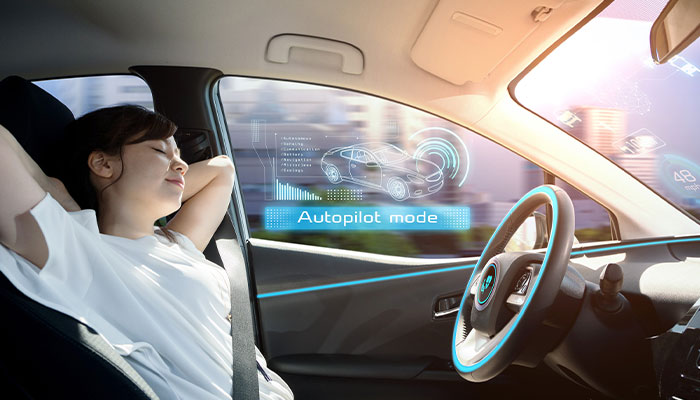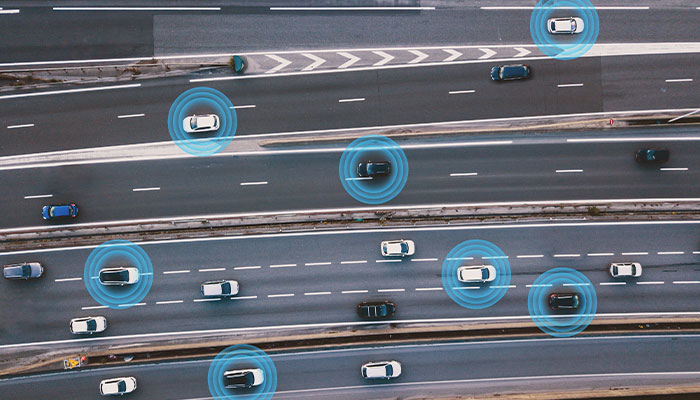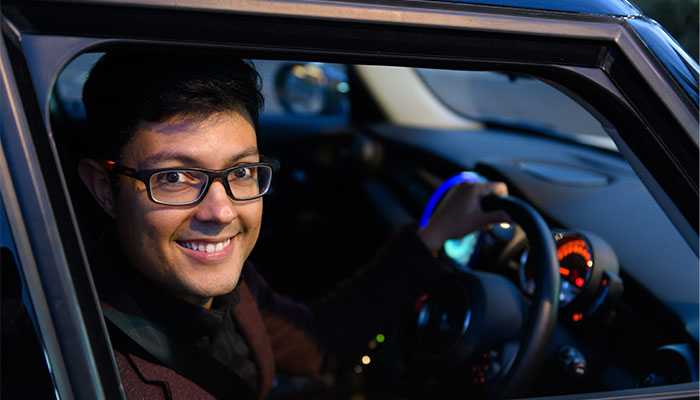Fully self-driving automation will be the next big mobility-related disruption and we can expect this innovation to enter the mass market in the coming decades.

Dream drive: Positive perceptions of autonomous vehicles include being able to sleep, eat or work on the commute.
Several automotive companies have already engineered prototypes and pilot schemes that work.
Our research paper looked at peoples’ perceptions of this technology and what would make them take it up.
Perceived pros
Commuting time would no longer be wasted time. While your autonomous vehicle (AV) drives you around, you could be eating, sleeping, watching TV or working.
You won’t have to find a parking space in the city or at the beach on a hot summer’s day; you’ll just tell your AV to go and park somewhere else.
Your AV might even be able to work as a taxi until you summon it to come and get you.
Or you could send it off to pick up the kids from school and take them home. Your AV might even be able to work as a taxi until you summon it to come and get you.
Other potential benefits of self-driving cars are likely to be a reduction of traffic accidents (and deaths), improved fuel economy and reductions in congestion and travel time.
Perceived cons
Concerns about AVs include high costs and maintenance expenses, road user fees, software and hardware issues, a rise in fuel consumption and emissions resulting from increased travel demand, legal issues relating to the protection of users and pedestrians, malicious hacking, safety concerns and the loss of jobs for alternative transport providers.
But the greatest barrier to widespread adoption of AVs may be psychological. Current perceptions of AV technology are generally positive and our research looks at what factors could determine greater acceptance and uptake.
What will make us do it?
Our paper delves into what is important to users and what might help them adopt self-driving technology.

Moving ahead: Tesla CEO Elon Musk has made hyperbolic predictions about a self-driving future, but the fact remains that his company and others are heading down this road.
We looked at usage intentions based on variables including perceived usefulness and ease of use, as well as factors such as social influence (what people around you are doing), individual differences (such as trust and the need to be in control) and system characteristics (such as price and enjoyment).
While our full study considers all of these variables – and combinations thereof – in detail, we essentially found positive usage intentions where there were perceptions of reliability and safety, of price, of ease of use, of an improvement on existing mobility options, and of compatibility with existing mobility options.
What would Elon do?
Elon Musk, evergreen optimist and CEO of Tesla Inc., has been predicting a self-driving future for some time.
In 2016, he said he expected that by the end of 2017 a Tesla would be able to drive in full autonomous mode from Los Angeles to New York "without the need for a single touch" on the wheel.
- Media at the crossroads: Why 2021 is a game change for media in Australia
- Please explain: Why does the world need poetry?
In April 2019, he said: “A year from now we will have over a million cars with full self-driving computer, hardware, everything” and that buying a car that cannot upgrade to full self-driving is like “buying a horse instead of a car in 2019".
OK, so Elon can be prone to hyperbole and wishful thinking but the fact remains, Tesla is heading down this road, as it were, and is working towards producing cars that are able to be fully automated.
Rival automakers have made similar, albeit less ambitious, announcements.
Governments around the world are also looking into this technology. In Australia, the NSW government is currently trialling autonomous vehicles.

Dr Mauricio Marrone (pictured) is a Senior Lecturer in Macquarie’s Department of Accounting and Corporate Governance at Macquarie Business School.



